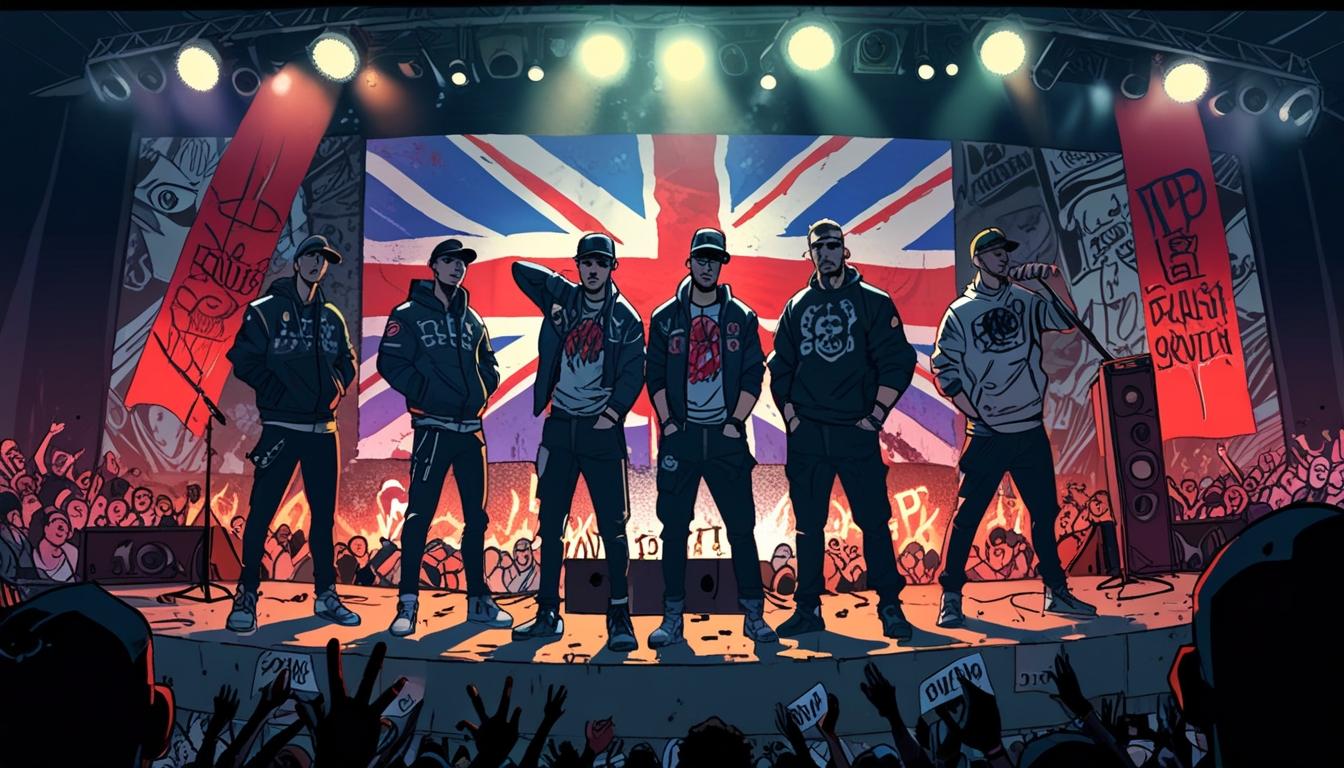West Belfast rap group Kneecap has found itself at the centre of a media storm following controversial remarks made during a recent performance. The band's on-stage comments regarding Hamas and calls for violence against Conservative MPs have sparked significant backlash, leading to discussions about the impact of their provocative image and the reactions it elicits from the public and political figures.
The controversy erupted when Kneecap, known for their blend of Irish and hip-hop influences, addressed political themes that many deemed inflammatory. Critics have called for the cancellation of their upcoming gigs, suggesting that the group's incendiary rhetoric crosses a line into unacceptable territory. This has prompted a broader conversation about the role of musicians in contemporary political discourse, as well as the responsibilities that come with a public platform.
John Meagher of the Belfast Telegraph highlighted that the uproar surrounding Kneecap echoes historical instances of music inciting political debate, referencing the Sex Pistols and their notorious antics in the late 1970s. The discussion revives questions about whether artists are becoming too polarising in their efforts to provoke thought or whether their message resonates with a specific audience eager to hear dissenting voices.
Kneecap's debut single, “CEARTA”, which faced a ban from RTÉ Raidió Na Gaeltachta, was meant to embody a spirit of irreverence, described as being created "just for the craic". This early work set the tone for the group’s continued emphasis on provocative themes, showcasing their commitment to addressing contentious issues within their music.
The recent backlash prompts a critical examination of how this "rabble-rousing image" contributes to the group’s identity. Some argue that the anger directed towards the band is a reflection of larger societal divisions, where music serves not only as entertainment but also as a platform for political expression. In this context, Kneecap’s choices raise questions about the ethics of artistic expression in light of societal sensitivities and the possible consequences of their provocative statements.
As conversations continue regarding freedom of expression in music, the debate surrounding Kneecap exemplifies an ongoing struggle between artistic license and social responsibility. Their position as one of Northern Ireland’s notable musical exports places them under scrutiny, revealing both the challenges and the complexities faced by artists in navigating their roles within a politically charged climate.
Source: Noah Wire Services
